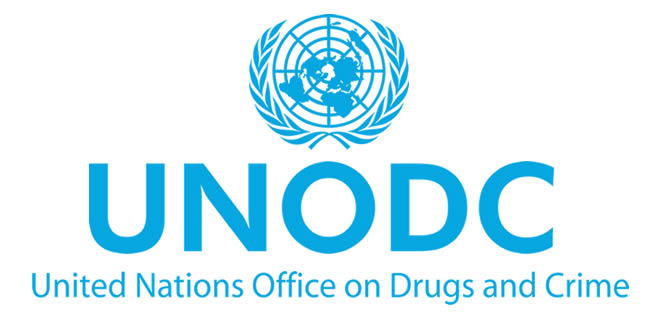Despite widespread concern about violent extremism and radicalisation around the world, prevention strategies often neglect vital tools: communities, families, and mothers of at-risk children. In the hopes of redressing the balance, Women without Borders (WwB) developed the ‘MotherSchools: Parenting for Peace’ Model, which aims to empower mothers to play an active role in the prevention of radicalisation and the building of community resilience. MotherSchools Germany was launched after the Bavarian government reached out to Women without Borders to explore the possibility of bringing the MotherSchools Model to Lower Franconia. To date there have been seven rounds of MotherSchools in nine locations and approximately 600 women from a range of backgrounds, including a group of women who had come to Germany as refugees from Syria, have taken part.
Extremism has gravely impacted on Germany’s modern era. From the rise of the National Socialist Party in the 1930s to the Red Army Faction, an extremist left-wing cell that carried out bombings and kidnappings in the postwar period, violent extremism has found an expression on both ends of the political spectrum. While radicalisation became significantly less prevalent towards the end of the twentieth century, extremist ideologies are once again on the rise. A number of terrorist attacks in recent years as well as an increase in recruitment by Islamist groups abroad have made radicalisation a major concern in modern Germany. Various prevention strategies are in place across the country, but more needs to be done to develop a cohesive, community-based approach that focuses on preventing rather than merely combatting violent extremism.
Women without Borders’ (WwB) ‘MotherSchools: Parenting for Peace’ Model, with its proven track-record in building community resilience around the world, offers a viable way forward. With the potential to help mothers contribute to preventing violent extremism (PVE), it is also a pioneering scheme that aims to include demographics which usually are neglected in PVE policy and decision-making.
In recent years, more than a thousand young men and women have left Germany to join Islamist terrorist organisations, primarily in Syria and Iraq, most of them under 30 years old. At the same time, a Salafist infrastructure has developed in Germany in recent years, which is dedicated to a wide range of activities, but above all to youth work. But radical anti-democratic ideologies are also finding their way into young people’s rooms, toxic messages that promote black and white thinking and extremist worldviews. The aim of the MotherSchools is to counteract the radicalisation of young people through mothers.
Since the beginning of MotherSchools Germany, the programme has engaged some 600 women with many more to follow. The MotherSchools groups have included participants from a range of cultural and socioeconomic backgrounds, including women with migrant backgrounds and a group of mothers who had moved to Germany as refugees from Syria or Iraq. Some groups were also partially conducted in Turkish and Arabic so that participants could express themselves with greater ease and more freely.
The programme began in Germany in 2017 with MotherSchools groups convening in four Lower Franconian locations. Between 2018 and 2020, WwB implemented another three rounds, introducing two new regions with groups in Augsburg and Nürnberg in 2019 and Hessen in 2020. Expanding its impact in both Bavaria and Hessen in 2021-2022, WwB rolled-out a fifth iteration in Augsburg, Passau, and Regensburg and returned in 2022-2023 for a sixth iteration in Regensburg and Frankfurt area. WwB are currently implementing the seventh round in Hessen and Bavaria, allowing MotherSchools to continue growing within Germany. The following sections outline further details of MotherSchools in Germany, as it has progressed since 2017.
MotherSchools Germany VII | 2023-2025
In 2023, WwB continued its expansion of MotherSchools throughout Germany, with two simultaneous rollouts in Bavaria and Hessen. The Bavaria project will see four groups rollout in Kempten and Regensburg between 2023-2025, funded by StMAS Bavarian State Ministry for Labor, Social Affairs, Family and Integration. While another two groups will convene in Frankfurt between 2023-2024 for the Hessen project, funded by the Government of the Federal State of Hessen, “Hessen – aktiv für Demokratie und gegen Extremismus”.
MotherSchools Germany VI | 2022-2023
After the successful implementation of two groups in 2021 with participants coming from Afghanistan, Women without Borders continued in Hessen with the implementation of two groups in the Frankfurt area with its local partner Rumi imPuls e.V. and three groups in Regensburg with CampusAsyl e.V.
MotherSchools Germany V | 2021-2022
In 2021 the MotherSchools movement in Bavaria continued to grow. In addition to Augsburg, the prevention program was also implemented in Regensburg and Passau. Due to the Covid-19 pandemic, the graduation ceremonies took place in small groups and online.
MotherSchools Germany II, III, & IV | 2018-2020
A second generation of MotherSchools participants graduated from the programme in late 2018. In 2019 Women without Borders opened up a new region and the MotherSchools were implemented in Augsburg and Nürnberg. Whilst the graduates from 2019 could celebrate their graduation in the impressive city halls of Augsburg and Nürnberg, the classes of 2020 were invited to a virtual graduation due to the Covid-19 pandemic.
In 2020 Women without Borders also had the chance to implement the prevention model in another region of Germany, Hessen, a region that has been fighting the phenomenon of extremist radicalisation for years.
MotherSchools Germany I | 2017
Recognising the significance of the MotherSchools Model, local government in Bavaria reached out to WwB to explore the possibility of bringing the Model to Lower Franconia. Preparations started in early 2017 and four MotherSchools groups were launched in September in Aschaffenburg, Erlenbach/Main, Schweinfurt, and Würzburg.

